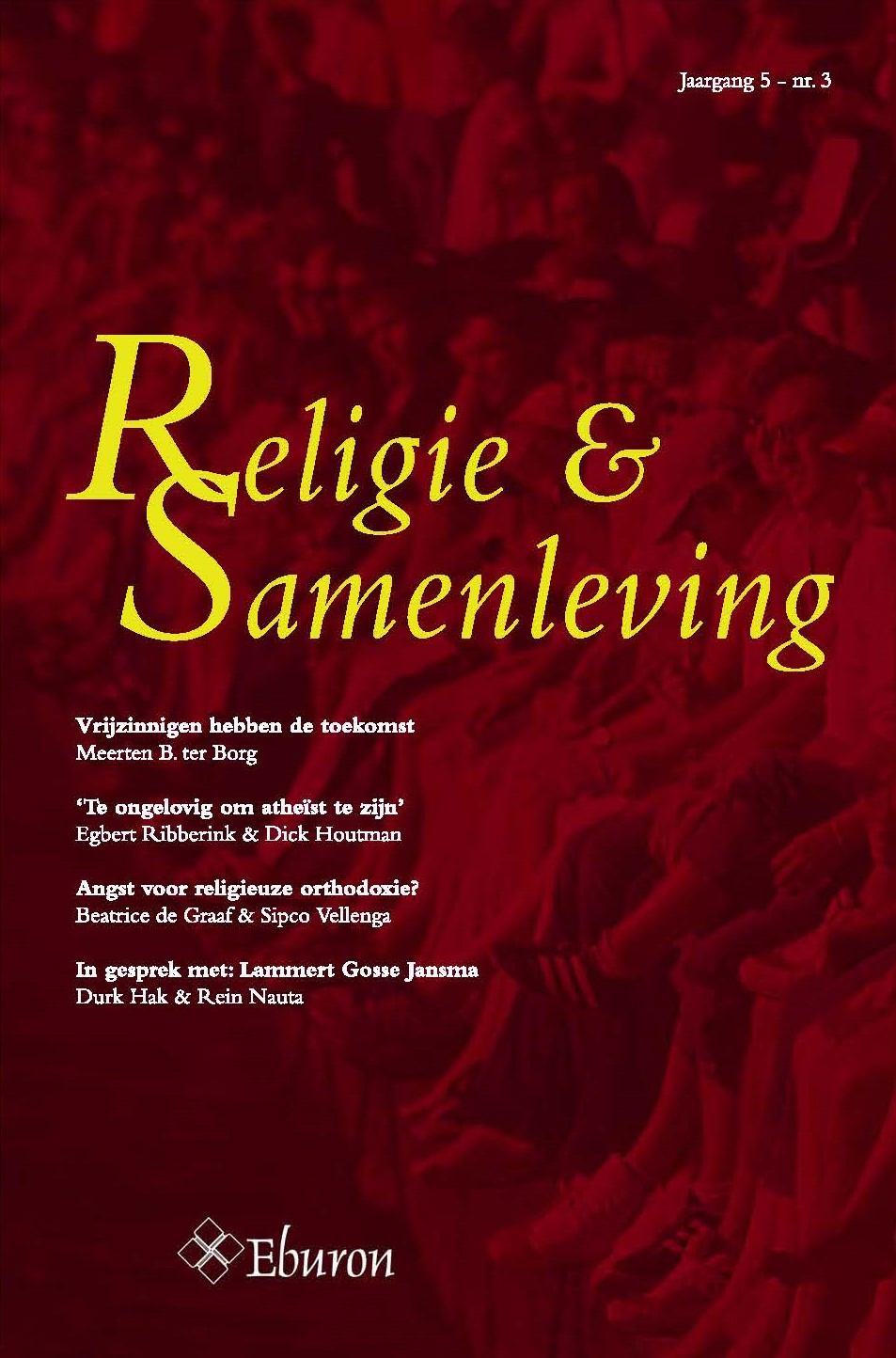Angst voor religieuze orthodoxie? De verbreding van het terrorismediscours sinds '9/11'
DOI:
https://doi.org/10.54195/RS.13062Samenvatting
During the first decade of the new millenium the terrorism discourse in the Netherlands has broadened to processes of radicalization and polarization. Because of this, not only Islamic extremism but also religious orthodoxy in general has become a subject within this discourse. This article aims to answer the question which factors have contributed to this development. After outlining the terrorism policy of the Dutch government since the 1960s, it connects the trend of broadening to the rising urgency of the item of security in politics and society in the context of ‘risk society’ and the recent polarization within Dutch society along the cultural faultline between a mainly secular, liberal moral majority and strict, orthodox religious minorities. Intentional and unintentional effects of the negative link between religious orthodoxy and security on the government policy and the relationship between orthodox religious minorities and other sections of the Dutch population are analyzed.




